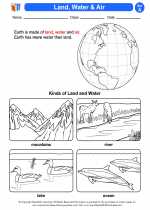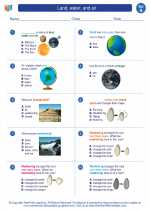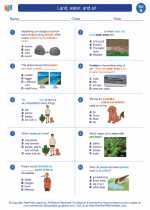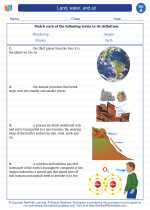Archaea
Archaea are a group of single-celled microorganisms that are similar to bacteria in size and simplicity of structure, but radically different in molecular organization. They are considered one of the three domains of life, with the other two being Bacteria and Eukarya. Archaea are found in a wide range of environments, including extreme habitats such as hot springs, salt lakes, and deep-sea hydrothermal vents.
Characteristics of Archaea
- Prokaryotic cells
- Unique cell membrane composition
- Ability to survive in extreme environments
- Diverse metabolic pathways
Study Guide for Archaea
When studying archaea, it's important to focus on their unique characteristics and their role in various ecosystems. Here are some key points to cover:
- Cell Structure: Describe the structure of archaeal cells and how they differ from bacterial and eukaryotic cells.
- Cell Membrane: Explain the unique composition of archaeal cell membranes, including the presence of ether linkages in their phospholipids.
- Extreme Environments: Discuss the ability of archaea to thrive in extreme environments, such as high temperatures, high salinity, and acidic conditions. Provide examples of specific archaeal species found in these environments.
- Metabolic Pathways: Explore the diverse metabolic pathways employed by archaea, including their ability to produce methane and their role in the nitrogen cycle.
- Ecological Impact: Investigate the ecological significance of archaea in various ecosystems, including their role as primary producers and their interactions with other organisms.
Understanding the unique features and ecological importance of archaea can provide valuable insights into the diversity of life on Earth and the fundamental processes that sustain ecosystems.
.◂Science Worksheets and Study Guides First Grade. Land, water, and air

 Activity Lesson
Activity Lesson
 Worksheet/Answer key
Worksheet/Answer key
 Worksheet/Answer key
Worksheet/Answer key
 Worksheet/Answer key
Worksheet/Answer key
 Worksheet/Answer key
Worksheet/Answer key
 Vocabulary/Answer key
Vocabulary/Answer key
